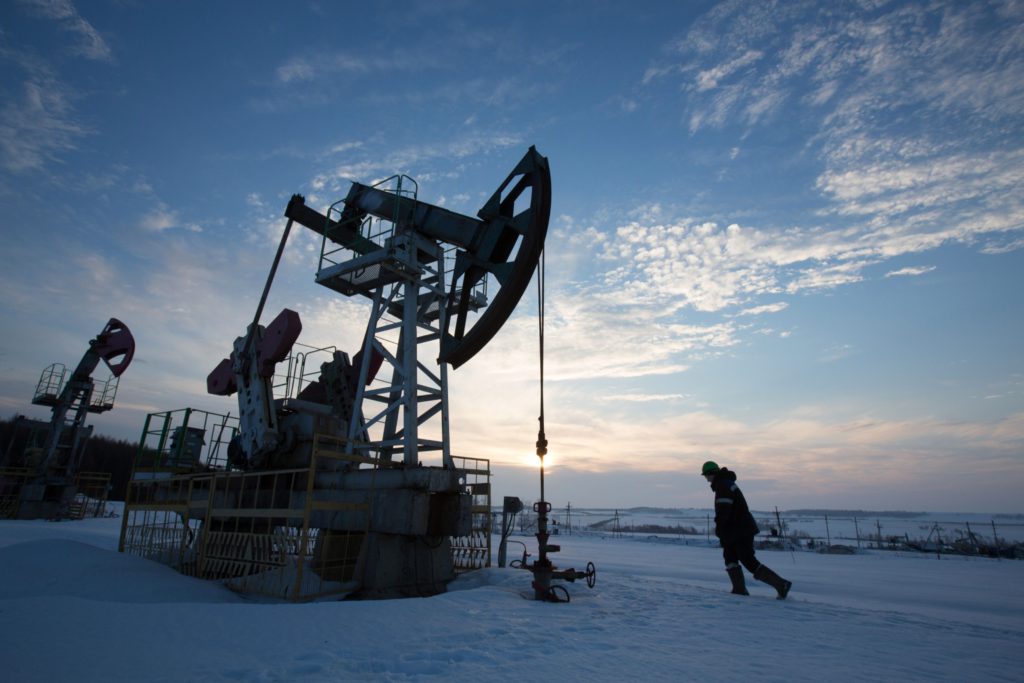(Bloomberg) — Oil soared as the Russian invasion of Ukraine continued to raise the specter of major global supply disruption.
Futures in New York climbed as much as 6.1% to, the highest since 2014. Brent futures jumped by more than $6 to above $104 a barrel. The European Union is discussing the exclusion of seven Russian banks from the SWIFT messaging system, including VTB Bank PJSC. It’s the latest in a list of mounting financial penalties against Russia, one of the world’s largest oil producers.
Banks including Goldman Sachs Group Inc., Morgan Stanley and JPMorgan Chase & Co. have boosted their oil price forecasts, anticipating possible supply disruptions. Consultant OilX said the probability of heavy disruption of seaborne Russian crude and products is growing, which could push prices above $150 a barrel.
To temper the rally, the U.S. and other major consuming nations are considering releasing 60 million barrels of strategic reserves, according to people familiar with the matter. That would be equivalent to less than six days of Russian output, and traders are weighing the potential impact. The International Energy Agency will hold an extraordinary ministerial meeting on Tuesday, Executive Director Fatih Birol said.
The invasion of Ukraine has upended commodity markets from oil to natural gas and wheat, piling inflationary pressure on governments. While the U.S. and Europe have so far stopped short of imposing sanctions directly on Russian commodities, the trade in those raw materials is seizing up as banks pull financing and shipping costs surge. Russia is the world’s third-biggest oil producer and, along with Saudi Arabia, an influential member of the OPEC+ alliance.
“The only thing we can expect for sure is that extraordinary levels of headline risks will continue to create a very difficult trading environment,” said Ole Hansen, head of commodities strategy at Saxo Bank A/S.
The turmoil sparked by the invasion will bring a new challenge in balancing a tightening market for OPEC+, which meets Wednesday to discuss output policy. Delegates said the cartel will probably stick to its plan of only gradually increasing supply. President Vladimir Putin spoke to the leader of the U.A.E. ahead of the meeting, while Saudi Arabia said it supports efforts to reduce escalation in Ukraine.
Indications of just how tight supply has been is showing in the market’s structure. Brent remains deep in backwardation, where prompt barrels command higher prices than later-dated cargoes. The benchmark’s prompt timespread was $3.89 a barrel in backwardation after surging on Tuesday. Several other gauges were the firmest since at least 2007.
Talks on the coordinated release are currently focused on tapping 30 million barrels from the U.S. Strategic Petroleum Reserve and an equivalent amount from a group of other countries, the people said. No decisions have been made and the discussions could continue for several more days, they said. Prior to the pandemic, global oil consumption was about 100 million barrels a day.
The invasion of Ukraine is also prompting oil companies to wind up their operations in Russia. Shell Plc and BP Plc have announced they will pull out, while TotalEnergies SE said Tuesday it will no longer invest in new projects in the country.











